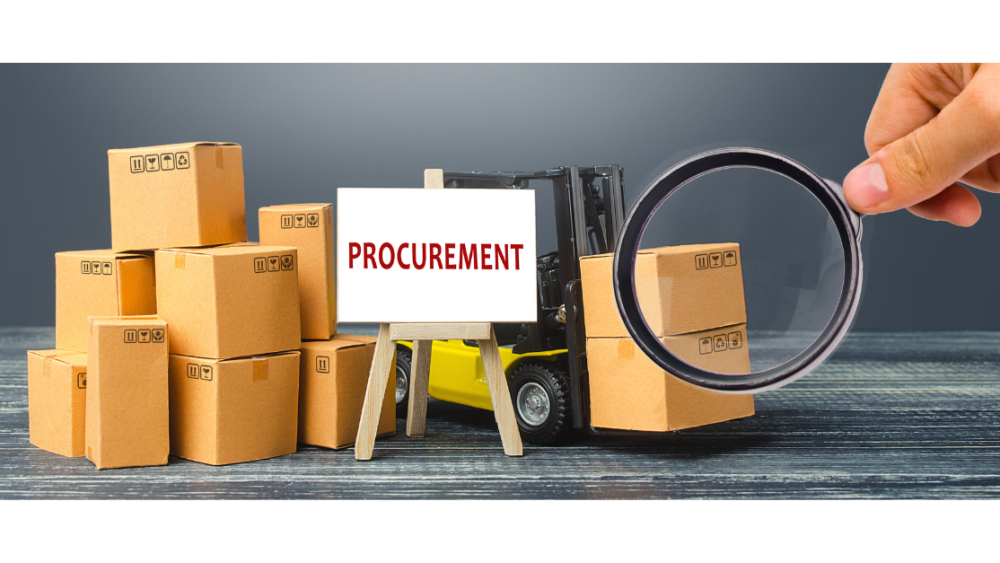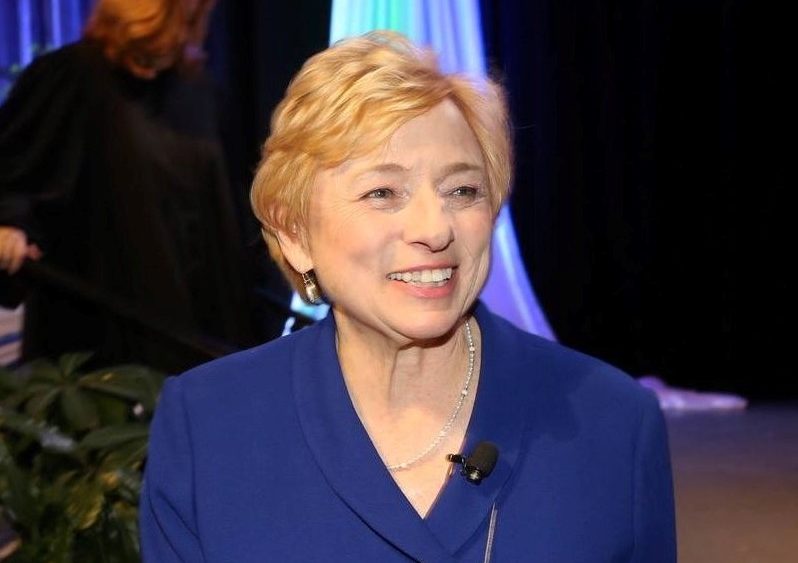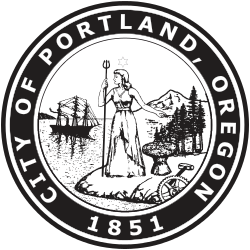April 9, 2024 •
Ask the Expert – Procurement Lobbying Registration Requirements

Image by Andrii Yalanskyi
Q: I want to sell my company’s product to a state or local government entity. Do I need to register as a lobbyist? A: Jurisdictions approach the issue of procurement lobbying differently and registration requirements can vary widely from one […]
Q: I want to sell my company’s product to a state or local government entity. Do I need to register as a lobbyist?
A: Jurisdictions approach the issue of procurement lobbying differently and registration requirements can vary widely from one jurisdiction to the next.
Some jurisdictions completely exempt procurement activities from their definition of lobbying. For example, in Maine, registration is not required for procurement-related activities because those activities are not considered lobbying. On the other hand, jurisdictions like Idaho require registration for procurement-related activities, subject only to the state’s general registration threshold.
To complicate matters further, some jurisdictions set different registration thresholds for procurement lobbying activities than they do for other lobbying activities. In Florida, for example, employees engaged in procurement activities on behalf of their employer are required to register as executive branch lobbyists if they lobby to procure a contract with a value of more than $20,000.
Additionally, even if a state’s law doesn’t cover a particular procurement activity, local entities and municipalities may have more stringent registration requirements that do reach your contemplated activities. Certain hospital systems and school districts in Florida, for example, require representatives of companies hoping to do business with them to register as lobbyists prior to meeting with them to discuss potential procurement opportunities.
Though sales teams often function separately from government affairs teams, if your company is selling to a governmental entity, you should carefully consider whether any lobbying laws will apply to your procurement efforts.
More information about procurement lobbying requirements can easily be found on our website in the Registration section of the Procurement Lobbying Compliance Guidebook.
March 13, 2024 •
Ask The Expert – Goodwill Lobbying Registration Requirements

FatCamera - Getty Images Signature
Q: I am an in-house lobbyist and frequently like to meet with legislators to build relationships. If I am not lobbying on any issues, do I still need to worry about registration requirements? A: You should absolutely be thinking about […]
Q: I am an in-house lobbyist and frequently like to meet with legislators to build relationships. If I am not lobbying on any issues, do I still need to worry about registration requirements?
A: You should absolutely be thinking about registration requirements anytime you interact with public officials or employees. Many states require registration for goodwill lobbying.
Goodwill lobbying is covered under the definition of lobbying in several states. The following states require lobbyist registration for goodwill activities: Alaska, Connecticut, Florida, Georgia, Hawaii, Idaho, Illinois, Indiana, Kansas, Maryland, Minnesota, Missouri, New York, North Carolina, Oregon, Pennsylvania, Tennessee, Texas, and Vermont.
Some states go as far as defining the specific conduct constituting goodwill lobbying. Registration in Connecticut is required for “door opening” when an influential individual interacts with a state agency on behalf of a client. The Tennessee Ethics Commission has said that “getting to know” or “building rapport” is considered lobbying in the state of Tennessee and is subject to all registration requirements.
Oregon defines, goodwill, as used in the definition of lobbying, as kindness, friendliness, benevolence, or generosity by a person or entity directed toward a legislative official that could cause the legislative official to have a favorable impression of, or thankfulness to, the person or entity.
It is always a good idea to check the jurisdiction’s specific registration requirements on our website prior to communicating with officials.
You can find this information under the “Registration” section of the U.S. Lobbying Compliance Laws online publication.
December 12, 2023 •
Ask the Experts – Training Requirements for Registered Lobbyists

Urupong - Getty Images Pro
Q: I heard some jurisdictions have training requirements for registered lobbyists. What do I need to do to comply with these requirements? A: Yes, you are correct. However, these requirements can vary greatly depending on the jurisdiction. For example, Maryland […]
Q: I heard some jurisdictions have training requirements for registered lobbyists. What do I need to do to comply with these requirements?
A: Yes, you are correct. However, these requirements can vary greatly depending on the jurisdiction.
For example, Maryland requires you to complete your initial training within six months of your initial registration date and subsequently within each two‐year period following the date of your most recently completed training course. When filing your registration, you will need to certify you are current and compliant with this biennial training requirement or you have been registered for less than six months and will complete the training within the initial six-month period. Failure to comply with this requirement can result in fines or even suspension of your registration.
On the other hand, Illinois requires its registered lobbyists to complete an annual ethics and an annual sexual harassment training as part of the registration process. Per Illinois’s Lobbyist Registration Act, a registration is not deemed to be complete until the training has been completed. As such, the training must be completed prior to engaging in lobbying activities. Further, since the training requirement is necessary to complete your registration, the training must be completed even if you terminate your registration prior to completing the registration.
As another example of training requirements, Chicago also has a mandatory annual training requirement for its registered lobbyist. However, the annual training must be completed by June 30 of every year for the 12-month period from July 1 through June 30. The Board of Ethics can assess fines of $250 for each day the training remains incomplete.
The key to maintaining training compliance is understanding these training requirements can be different for each jurisdiction in which you lobby. So, it is imperative to familiarize yourself with each relevant jurisdiction’s requirements, including the timing and frequency of the training, to ensure full compliance.
More information about these topics can be found in the Lobbying Compliance Guidebook on the State and Federal Communications subscriber website by selecting the desired jurisdiction from the list.
March 17, 2020 •
Maine Governor Signs Bill Clarifying Lobbyist Reporting Requirements

Maine Governor Janet Mills
On March 12, Gov. Janet Mills signed into law Legislative Document 1867 clarifying lobbyist reporting and registration requirements. The bill requires lobbyists to file a separate report for expenditures totaling over $300 in a calendar month. Expenditures include those made […]
On March 12, Gov. Janet Mills signed into law Legislative Document 1867 clarifying lobbyist reporting and registration requirements.
The bill requires lobbyists to file a separate report for expenditures totaling over $300 in a calendar month.
Expenditures include those made to or on behalf of covered officials by the lobbyist, lobbyist associate or lobbying firm without reimbursement from an employer.
Legislative Document 1867 also defines a lobbying firm as a partnership, corporation, limited liability company or unincorporated association that employs or contracts with more than one lobbyist or lobbyist associate.
Additionally, the firm receives or is entitled to receive compensation for engaging in lobbying either directly or through its employees.
The bill also expands the annual harassment training to include lobbyist associates.
Legislative Document 1867 is effective December 1, 2020.
June 22, 2016 •
Portland, Oregon to Reconsider Ethics Reforms
Today the Portland City Council is scheduled to reconsider adopting new ethics reform measures to broaden the revolving door prohibition to two years and increase the penalties associated with repeated ethics violations. The proposal would also close a loophole in […]
 Today the Portland City Council is scheduled to reconsider adopting new ethics reform measures to broaden the revolving door prohibition to two years and increase the penalties associated with repeated ethics violations.
Today the Portland City Council is scheduled to reconsider adopting new ethics reform measures to broaden the revolving door prohibition to two years and increase the penalties associated with repeated ethics violations.
The proposal would also close a loophole in registration requirements, requiring lobbying entities that spend more than $1,000 a quarter on lobbying activities to register.
The proposed ordinance is a compromise that is less restrictive than a similar ordinance that was introduced in April 2016.
State and Federal Communications, Inc. provides research and consulting services for government relations professionals on lobbying laws, procurement lobbying laws, political contribution laws in the United States and Canada. Learn more by visiting stateandfed.com.

